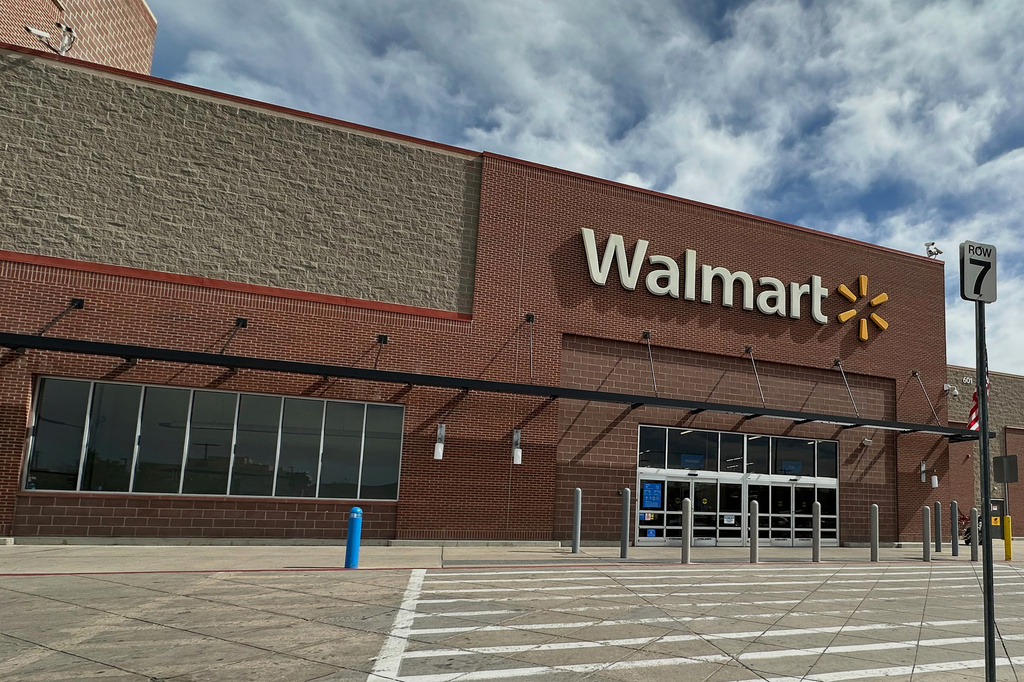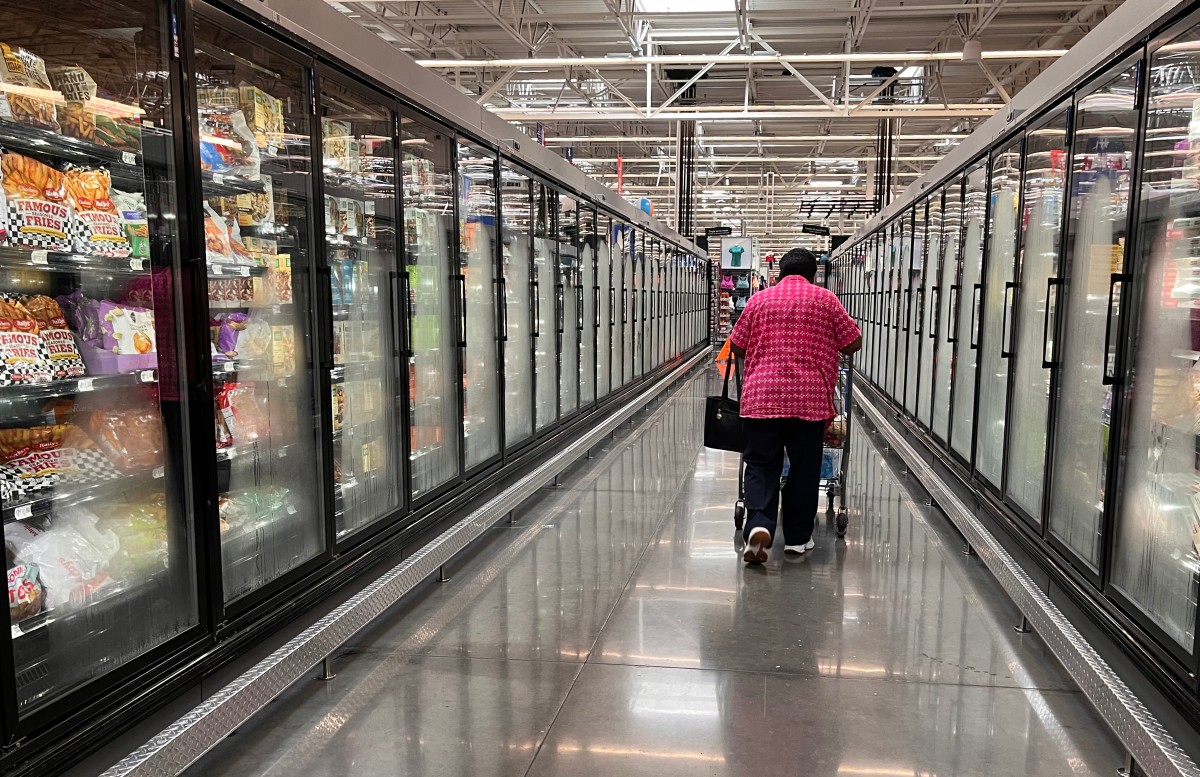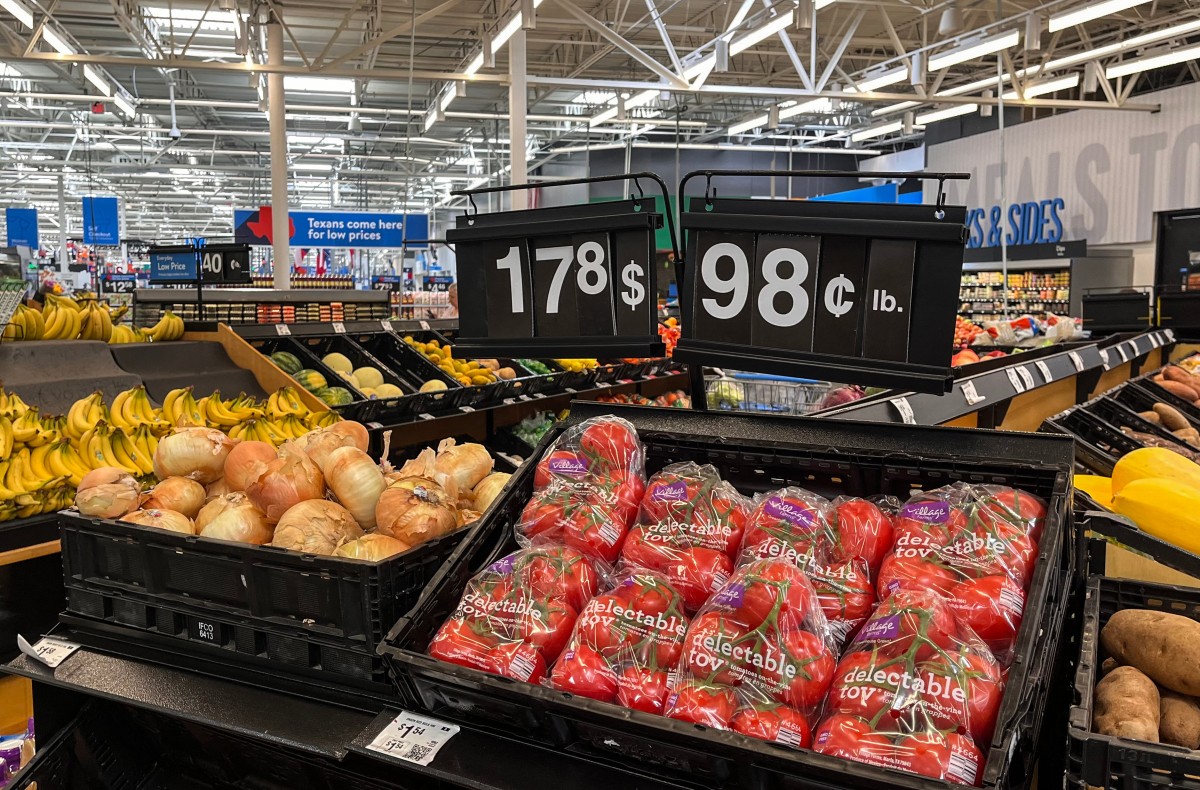
Walmart, the world's largest retailer, will have to start raising prices later this month due to the high cost of tariffs, executives said on Thursday, in a clear signal that US President Donald Trump's trade war is filtering through to the American economy.
As a bellwether of US consumer health, Walmart's explicit statement is also a signpost for how the trade war is affecting companies as Walmart is noted for its ability to manage costs more aggressively than other companies to keep prices low.
Shares were flat in afternoon trading, recouping most of its early losses of 4 percent in morning trading after it also declined to provide a profit forecast for the second quarter, even as the company's US comparable sales surpassed expectations in the first quarter.
Net sales rose 2.5 percent to $165.6 billion, a hair shy of estimates, while same-store sales were up 4.5 percent.
Many US companies have either slashed or pulled their full-year expectations in the wake of the trade war, as consumers curtail their spending. Walmart's statement, however, will resonate nationwide, as roughly 255 million people shop in its stores and online weekly around the world, and 90 percent of the US population lives within about 16 kilometers of a Walmart store.
US shoppers will start to see prices rise at the end of May and certainly in June, Walmart's Chief Financial Officer John David Rainey said in a CNBC interview. On a post-earnings call with analysts, he said the retailer would also have to cut back on orders as it considers price elasticity.
As the largest importer of container goods in the United States, Walmart is heavily exposed to tariffs, executives said.

"We're very pleased and appreciative of the progress that has been made by the administration to bring tariffs down ... but let me emphasize we still think that's too high," Rainey said on the call, referring to the tariff cuts negotiated over the weekend.
"There are certain items, certain categories of merchandise that we're dependent upon to import from other countries and the prices of those things are likely going to go up, and that's not good for consumers," he added.
ALSO READ: Walmart squeezes suppliers as tariffs weigh
Other retailers also said they would be boosting prices. German sandal maker Birkenstock on Thursday said it plans to raise prices globally to fully offset the impact of the US tariff of 10 percent on European Union-made goods.
US consumer sentiment ebbed for a fourth straight month in April, signaling watchful purchasing, while the country's GDP contracted for the first time in three years during the first quarter, fanning worries of a recession.
Still major economic indicators in April showed that tariffs had not pushed America off a cliff, a point noted by the White House in response to a question on Walmart's price hikes.
"All recent inflation data—from consumer prices to producer prices—have come in below expectations. Meanwhile, private demand growth and job creation remain healthy," White House spokesperson Kush Desai said.
"Through tariffs and more balanced trade deals, rapid deregulation, and massive tax cuts, the Administration remains committed to further reducing the cost of living," Desai added.
ALSO READ: Many people in US puzzled by self-inflicted wounds to economy
Narrow margins
Walmart's CEO Doug McMillon on Thursday said the retailer would not be able to absorb all the tariff costs because of narrow retail margins, but was committed to ensuring that tariff-related costs on general merchandise do not drive food prices higher.
To mitigate the impact, Walmart is working with suppliers to substitute tariff-affected components, such as replacing aluminum with fiberglass, which is not subject to tariffs.
Despite these efforts, McMillon noted that adjusting costs is more challenging in cases where Walmart imports food items like bananas, avocados, coffee, and roses from countries such as Costa Rica, Peru, and Colombia.

Analysts said Walmart was better positioned than rivals as its scale enables it to lean on its suppliers and squeeze out efficiencies to shield customers from tariffs, but only so much.
"There will likely be some demand destruction from tariffs, a complete wreck is unlikely," said Brian Jacobsen, chief economist at Annex Wealth Management.
The retailer reported quarterly adjusted profit of 61 cents per share. Analysts, on average, were expecting 58 cents per share.
The company on Thursday kept its annual sales and profit forecast intact for fiscal 2026. It continues to expect adjusted earnings per share for the fiscal year ending January 2026 in the range of $2.50 to $2.60 and annual sales to rise between 3 percent and 4 percent.
Withheld EPS forecasts
Same-store sales in the first quarter grew by 4.5 percent. Analysts were expecting a 3.9 percent increase in US same-store sales, according to LSEG.
US e-commerce sales rose 21 percent, while globally they rose 22 percent. This was the first time Walmart's eCommerce business achieved a full quarter of profitability, benefiting from higher-margin businesses, including online advertising and its marketplace, the company said.
The retailer expects second-quarter consolidated net sales between 3.5 percent and 4.5 percent, compared to expectations of 3.46 percent growth.
READ MORE: MOC meets Walmart after retailer asks suppliers to cut prices
At the same time, however, it withheld second-quarter operating income growth and earnings per share forecasts citing a "fluid operating environment... (which) makes the very near term exceedingly difficult to forecast at the level and speed at which tariffs could go up".


